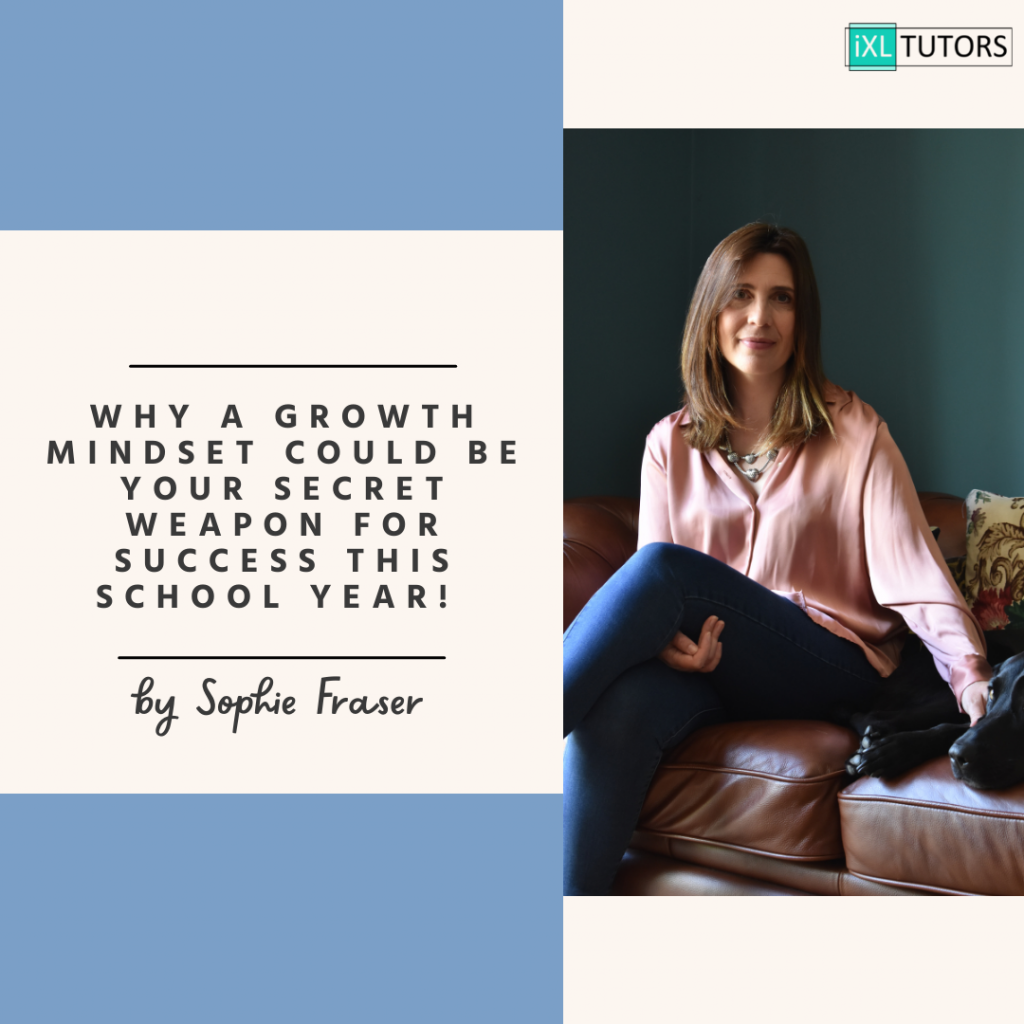
Why a growth mindset could be your secret weapon for success this school year!
Have you ever got that feeling that you are just not cut out for learning?
Perhaps you have felt discouraged when you get things wrong. Maybe you have felt dejected when you are not right the first time, or not good enough when you compare yourself to other students.
Well, first things first. You are not alone. All of us have, at some point, experienced these feelings. It’s completely normal, but it’s not pleasant.
But I’m here to tell you that you can start to change your thinking, and when you change your thinking you can change your outcomes!
And… anyone can do it. Trust me.
If you are looking for a ‘secret weapon’ to help you get better at learning and give you the life skills for success (and feel a whole lot better), then this blog is for you!
In this blog I’m going to cover these questions:
- What exactly is a growth mindset?
- How will developing a growth mindset help me with my studying?
- How can I start to create a growth mindset?
- What are your top tips for getting going?
What is a growth mindset?
How many times have you told yourself that you are simply not ‘good’ at something; for example “I’m not good at maths”, or “I’m just not musical or sporty or creative”?
And I’m sure you may have also heard someone in your family talk about it as a family trait; “we are not very athletic in our family’” or we “are a creative bunch”?
But is that really true, or just a story we have heard and kept repeating in terms of a preference we adopted.
The truth is your biology doesn’t have as much influence on your abilities as your preconceived ideas and preferences do.
A growth mindset is your positive belief around your ability to get better at something through hard work, not ‘intelligence’.
A growth mindset is when you understand that your talents and abilities can be grown. You can do this with practice, effort and gaining more knowledge around that talent or ability.
How will a growth mindset help me with my studying?
People with a growth mindset are not brainier and don’t have a higher IQ, but in scientific studies, they do tend to outperform fixed mind setters because of their ability to learn from their mistakes and not give up.
You are also less likely to be discouraged by failure because you can reframe challenges as learning opportunities. This can make you feel happier and more in control.
When you develop a growth mindset you can work towards whatever learning goal you ever have in life and understand you can develop the skills and qualities that you aspire to possess. The world is your oyster so to speak. You recognise that hard work will pay off over time.
The opposite of a growth mindset is a fixed mindset. A fixed mindset assumes that things like our creativity, intelligence and moral character are static and cannot be changed.
Here are the fundamental learning differences in mindset when it comes to achieving something you want in life:
Fixed Mindset

Growth Mindset
How can I start to create a growth mindset?
- Learn to take risks. Be prepared to push yourself out of your comfort zone – it will be worth it in the end.
- Develop the ability to learn from mistakes. Mistakes are not bad. There is no such thing as perfect in life, this is just a myth.
- Remember that failure helps because your brain is more tuned into negativity (a survival mechanism), so when you get something wrong the brain gets very interested in this experience! i.e. failure is an excellent teacher!
- You win some, you lose some. Or you win some or LEARN some.
Top tips for developing a growth mindset!
Part of having a growth mindset is realising this is about changing what you believe is possible.
Therefore, just like building muscles through exercise, you need to build and flex your ‘growth mindset muscle’. It may be hard in the beginning, but the more you do it, the more your brain will latch onto new ways of thinking and build new neural pathways, which get stronger over time.
Try and get into the habit of celebrating small wins. You can use this handy acronym to help:
RAIN
Recognise: Your achievements rather than what you still have to do.
Acknowledge: what can you do to acknowledge? A small reward, a note to yourself
Investigate: which of your actions led to the success? What obstacles did you encounter, what effort did you put in and what did you learn?
Nurture: Your brain will love these small ‘kicks’ of success. A small amount of dopamine – your happy hormone – will be released, making you want to repeat the behaviour!
To get going try to look at one area of your learning you would like to improve. Ask yourself these questions:
- What are you struggling with right now?
- What new strategies could I try?
- What can a learn from this?
- What is one thing I will try to ‘get out of my comfort zone’?
- Who can I reach out to for help with this?
Good luck!
About Sophie
Sophie Fraser is a Neuro Change Practitioner and Rapid Transformational Therapist. She works with her clients to help them rewire their mindset to achieve their biggest goals, unlock productivity, remove self-limiting beliefs and thrive! She uses a coaching and therapeutic approach based on cutting-edge neuroscience, which she translates into easy and practical strategies to release mental or emotional obstacles holding you back.

